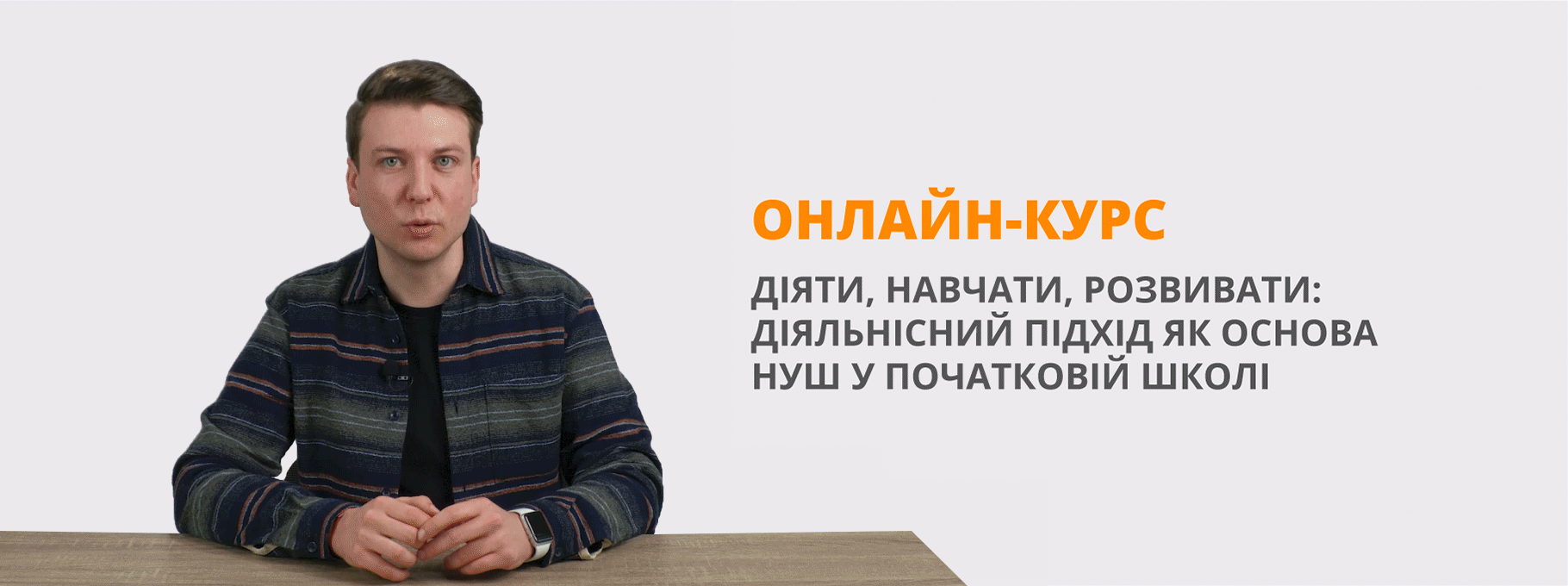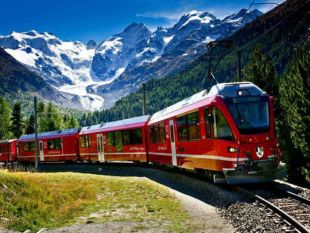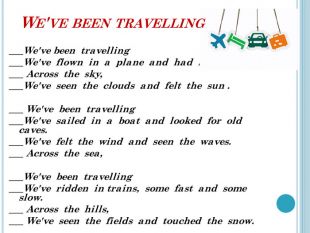Урок "Подорож. Travelling"
- Travelling.docx docx
- Travelling.pptx pptx
МІНІСТЕРСТВО ОСВІТИ І НАУКИ УКРАЇНИ
ДВНЗ «КРИВОРІЗЬКИЙ НАЦІОНАЛЬНИЙ УНІВЕРСИТЕТ»
ПОЛІТЕХНІЧНИЙ КОЛЕДЖ
Циклова комісія філологічних дисциплін
План-конспект уроку на тему:
Види подорожей. Поїздка за кордон.
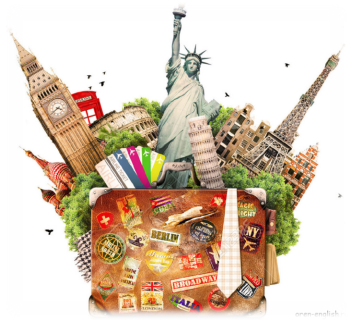 Kinds of travelling. Travelling abroad.
Kinds of travelling. Travelling abroad.
Розглянуто та схвалено на засіданні Циклової комісії філологічних дисциплін
Протокол №__ від «__»________ 2019 р. Голова комісії:
_____________О.О.Соколова Викладач іноземної мови: _____________Н.Ю.Іващенко
2018-2019 н.р.
Тема: Подорож. Travelling.
Підтема: Види подорожей. Поїздка за кордон. Kinds of travelling. Travelling abroad.

Вид заняття: комбіноване заняття
Цілі:
Практичні:
- активізувати навички використання вивчених ЛО теми «Подорож» на аудіюванні, читанні, письмі та говорінні;
- повторення граматичного матеріалу з теми «Займенники some, any, no та їх похідні»;
Освітні:
- ознайомити з напрямками та видами подорожей популярних у англомовних країнах;
- розширювати знання учнів щодо традицій та особливостей транспорту в різних країнах;
- розуміти особливості свого мислення, розширити світогляд;
Розвиваючі:
- розвивати пам’ять та уважність під час читання;
- розвивати фонематичний слух та уважність при аудіюванні та говорінні;
- розвивати мовленнєві здібності (мовної здогадки, імітації, логічного викладення думок) ;
- розвивати інтелектуальні і пізнавальні здібності різних видів пам’яті – слухової й зорової, оперативної та тривалої, уваги - довільної та мимовільної, уяви;
Виховні:
- виховувати ввічливу та коректну поведінку у громадських місцях загального користування та у ситуаціях спілкування з обслуговуючим персоналом;
- виховати культуру спілкування, прийнятої в сучасному цивілізованому світі;
- виховати такі риси характеру як доброзичливість, толерантність, колективізм, активність, працьовитість;
Методи: Репродуктивний (словесні та практичні), навчально –дослідницький
Дидактичні засоби навчання: аркуші з текстами та диференційовані завдання, роздатковий матеріал, дошка, зошит, учнівські повідомлення
Література: Мережа Інтернет.
Хід аудиторного заняття:
I. Початок заняття.
1. Організаційна частина заняття. Повідомлення теми, мети та основних завдань заняття:
Teacher: Hello, dear students! Dear guests, you are welcome to our English class! I see, that all are present today, so we can start. Today we are going to talk about different kinds of travelling and about the most favourite theme of many people – travelling abroad . Of course, we’ll work with words about travelling, repeat some grammar rules and improve your skills in listening and comprehensive.
2. Мовленнєва розминка:
Teacher: We live in the world which is a great mixture of places, people, things, built by humans or created by people. It’s like a huge whirlpool, twirling you in its deep layer of knowledge. It’s fascinating that now we can travel to every spot in the world. That’s why nowadays travelling has become an important part of modern life. Millions of people all over the world travel about their own countries and to foreign lands as well. So, to begin with, look at the whiteboard, please. There is a proverb here:”Travel broadens the mind”. How can you explain it?
(Pupils give their explanations)
Teacher: I agree with everybody that travel broadens the mind. That's true. Getting out of the place where you always live, then going to an unfamiliar place will be a kind of unforgettable experience in your life.
II. Основна частина.
Актуалізація опорних знань студентів і контроль вихідного рівня знань.
- Робота з ЛО теми “Travelling”:
Teacher: Now I’d like to draw your attention to the words connected with travelling. Say which word in the line is odd and why:
(Pupils choose the odd words and explain their choice)
- Ski holiday: chalet, instructor, sun hat, ski lift
- Sightseeing holiday: gallery, museum, tour guide, goggles
- Camping holiday: sleeping bag, torch, suit, tent
- Cruise holiday: captain, cabin, port, pilot
- Safari holiday: fur coat, jeep, binoculars, insect repellent
Teacher: The next task is to give a definition of following words in English. What does every word mean?:
journey - an act of travelling from one place to another;
passport - an official document issued by a government, certifying the holder's identity and citizenship;
passenger – a person who is traveling from one place to another in a car, bus, train, ship, airplane, etc.;
baggage - suitcases and bags containing personal things packed for travelling;
arrival – the action of coming back to the country or town at the end of a journey;
departure - the action of leaving, especially to start a journey.
Teacher: It’s not a secret that we can travel by different means of transport. You have already learnt all of them and now I propose you to guess some of them.
What are they? Guess what`s what.
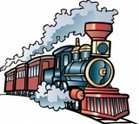 1) Houses run
1) Houses run
Upon these rails
Over hills
And over dales
(a railway line and a train)
2) This young foal
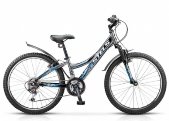 Looks nice and gay
Looks nice and gay
He eats
Neither oats nor hay
Firmly grip
The handle-bar
If you want
To travel far
(a bicycle)
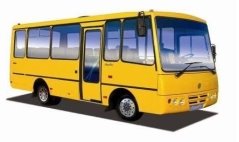
3) This house on wheels
Is running a race
Taking people
From place to place
(a bus)
4) Have a look
 At this fine steed
At this fine steed
He looks very strange indeed
Eats petrol
And never grazes
Fast along the road and races
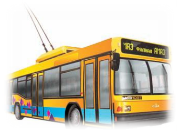 (a motor-car)
(a motor-car)
5) We`re half a tram and a half a bus
Will you come and ride in us
(trolley-buses)
Teacher: Wonderful! And our last task connecting with words about travelling is to choose and underline the correct words in the sentences:
(students do the task by themselves on separate sheets of paper and then check their answers with the teacher)
1. There’s a lot of time for travel / sightseeing, so take your camera.
2. How was the sightseeing / flight to Paris?
3. The holiday travel / package included five nights in a good hotel and all our meals.
4. You should never ride / travel a bicycle without wearing a safety helmet.
5. During the seven-day tour / voyage, the ship travelled to three different countries.
6. It’s a long journey / package by bus and it can be very uncomfortable.
7. Visitors can take a trip / tour of the museum with a trained guide.
8. I hope your business trip / journey to Japan was successful.
- Розвиток усного мовлення:
Teacher: It seems to me that you like travelling. Am I right? I propose you to choose one piece of paper on which you can find a couple of questions. Your task is to answer them as quickly as you can:
- How often do you go on holiday? Where have you been?
- What are the most popular tourist attractions in your country?
- Which museums have you visited? Which did you enjoy most? Why?
- City trip or beach holiday? Which do you prefer? Why?
- For tourists, what is the most convenient way to get around in your country?
- Have you taken a long distance bus trip? How many hours were you on the bus?
- Which cities in Ukraine have you visited? What’s your top 3?
Teacher: Thank you for right answers and interesting ideas! But speaking about famous kinds of transport we can’t forget one of the fastest and the most comfortable way of travelling – train! And of course all of you will be connected with this kind of transport in your future profession!
- Do you sometimes travel by train?
- Do you like it?
Now you are going to divide into three groups. First two groups - your task is to write down things you like (1st group of students) and things you don’t like (2nd group of students) about travelling by train:
|
Advantages of train travel |
Disadvantages of train travel |
|
|
|
|
|
Then we’ll compare them and complete the table.
And the 3rd group of students is going to do the next task. You have to put in the correct order the following sentences to make a dialogue:
Cashier: Good morning! Can I help you?
Traveller: Hello! I want a ticket to London.
Cashier: What train would you like?
Traveller: First-class, please.
Cashier: Would you like 10.45 or 12.50 train?
Traveller: 10.45, please.
Cashier: 10.45 is a direct train. Would you like a compartment?
Traveller: Yes, thank you.
Cashier: Single or return?
Traveller: Return.
Cashier: How would you like to sit: face to direction or back to direction?
Traveller: Face to direction
Cashier: It is £148.
Traveller: It’s nice.
Cashier: Here is your ticket and your change.
Traveller: Thank you very much!
Cashier: You are welcome!
- Хвилинка відпочинку. Relax minute:
Teacher: You’ve worked nice and now it’s a relax minute! Sit comfortably. Close your eyes. Let`s pretend it’s spring. It`s May. You are in the forest. The weather is fine. The light wind is flowing. The birds are singing. The small butterflies are flying around you. You have no troubles. No serious problems. You are relaxing. Open your eyes. Let`s continue our lesson.
- Повторення граматичного матеріалу.
Teacher: At the previous lesson we learnt the rules of using indefinite pronouns. Now let’s do a grammar exercise. Fill the gaps with some, any, no and their derivatives. You have different variants. You have 3-4 minutes to make it by yourselves.
|
1 Fill in some, any, no and their derivatives.
|
2 Fill in some, any, no and their derivatives. |
|||||
|
1 I’ve got … bananas for you. 2 He was at home in summer, he didn’t go … 3 There is … milk in the fridge. 4 Have you got … brothers and sisters? 5 My mother likes … songs of this singer. 6 Could you ask her … question? 7 This salad isn’t tasty! There isn’t … salt in it! 8 They couldn’t see … . 9 She is too sad, but she didn’t say … . 10 There aren’t … books on the desk |
1 There aren’t … oranges on the table. 2 Could you pass me … bread, please? 3 Do you have … soup for dinner? 4 There was … in the room when I came. 5 Did you choose … book for the composition? Yes, I took … . 6 … is here, the room is empty. 7 Is there … wrong? 8 Has she got … cousins in England? 9 … knows that there are 12 months in a year. 10 We’ve got … cheese. Let’s make … sandwiches.
|
|||||
|
3 Fill in some, any, no and their derivatives |
4 Fill in some, any, no and their derivatives. |
|||||
|
1 He couldn’t see … in the darkness. 2 She’s got … beautiful cards from London. 3 There is … soup for you in the fridge. 4 Is … ready to answer? No, … is ready. 5 Mary has got … new friends. 6 I didn’t have … time now. 7 The weather is fine, let's go … . 8 I can’t hear … , speak louder, please. 9 Could you tell me … about your college? 10 … short stories were really funny. |
1 Is there … salt in the cupboard ? 2 There aren’t … mistakes in your test! 3 She didn’t go … she was busy at home. 4 Could you give me … cake? 5 Where is your brother? I can’t find him … . 6 I didn’t have … ice-cream in the fridge. 7 What has happened? Is … wrong? 8 He has no house, he lives … . 9 Give me … to read, please. 10 Will you go … on Sunday? |
|||||
|
5 Fill in some, any, no and their derivatives. |
6 Fill in some, any, no and their derivatives. |
|||||
|
1 Is there … sugar in the tea? 2 I want to drink, but there is … water in the cup. 3 Would you like … melon? It is sweet. 4 My friend lives … near our college. 5 Mike got a bad mark, he doesn't know … . 6 Will you go … in summer? 7 There aren’t … oranges on the table. 8 She has … mistakes in her test, her mark is 5. 9 On holidays there are a lot of people … . 10 I have a lot of money, I can buy … . |
1 I can’t make a cake, because I can’t find … flour. 2 Could you ask her … question? 3 My father saw … in the garden. 4 Did you see this man … ? 5 You must find … who can help you. 6 This problem is very difficult, … can solve it. 7 My granny can't find her glasses … . 8 He has never given money to … . 9 I'm lonely, I have … relatives. 10 There aren’t … oranges on the table. |
|||||
|
7 Fill in some, any, no and their derivatives |
8 Fill in some, any, no and their derivatives. |
|||||
|
1I didn't pay … for it, it's a present. 2 There isn’t … orange juice in the glass. 3 Did you go … last summer? 4 There is … in the box, it is empty. 5 Would you like … cake? It is very tasty. 6 We can swim … : in the river, in the sea, in the lake. 7 Give me … to eat, please. 8 I'd like to ask you … questions. 9 I have … time now, I can help you. 10 Are there … new stamps in your collection? |
1 I didn't see … in the street so early. 2 After dinner he drank … juice. 3 There isn’t … milk in the cup. 4 Where did you see her? I saw her … . 5 Is there … interesting on TV tonight? 6 I'm waiting for them, … can come first. 7 Would you like … to drink? 8 The child is ill, Mum doesn't give him … ice-cream. 9 There are … pens, but … pencils in the bag. 10 I don't have … money, I can buy … . |
|||||
|
Answers: |
||||||
|
1 |
2 |
3 |
4 |
|||
|
1 some 2 anywhere 3 some 4 any 5 any (some) 6 some 7 any 8 anything (anybody) 9 anything 10 any |
1 any 2 some 3 any 4 anybody 5 any, some 6 nobody 7 anything 8 any 9 anybody 10 some, some |
1 anything (anybody) 2 some 3 some 4 anybody, nobody 5 some 6 any 7 somewhere 8 anything 9 something 10 some |
1 any 2 any 3 anywhere 4 some 5 anywhere 6 any 7 anything 8 nowhere 9 something 10 anywhere |
|||
|
5 |
6 |
7 |
8 |
|||
|
1 any 2 no 3 some 4 somewhere 5 anything 6 anywhere 7 any 8 no 9 anywhere 10anything |
1 any 2 some 3 somebody (s-thing) 4 anywhere 5 somebody 6 nobody 7 anywhere 8 anybody 9 no 10 any |
1 anything 2 any 3 anywhere 4 nothing 5 some 6 anywhere 7 something 8 some 9 some 10 any |
1 anybody 2 some 3 any 4 somewhere 5 anything 6 anybody, anyone 7 something 8 any 9 no, some (some, no) 10 any, nothing |
|||
- Аудіювання.
Teacher: Now we’ll listen to the the story of Mr Jones who is a helicopter pilot.
You have to listen and say True or False about following sentences:
- Mr Jones has been flying helicopters since he was 18. F
- He sometimes takes people to hospital. T
- He dislikes working with famous people. F
- He took an African prince to his house. F
- He hates being so high in the sky. F
- Some of his work starts very early. T
- Перевірка виконання пректів.
Teacher: So, we have come up to the most interesting part of our lesson. At the previous lesson some of you started to work on projects about interesting kinds of transport around the world. What transport have you chosen for your project?
You are welcome to show your presentation.
(The groups of students show their projects)
- Пісня.
Teacher: And at the end of our lessen I propose you to listen to the song “We’ve been travelling”. Your task is to listen and order the lines.
We've been travelling
1 We've been travelling
4 we've flown in a plane and had lots of fun.
2 Across the sky, 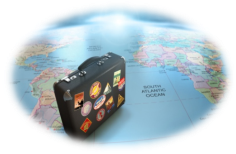
3 we've seen the clouds and felt the sun .
5 We've been travelling
8 we've sailed in a boat and looked for old caves.
7 we've felt the wind and seen the waves.
6 Across the sea,
9 we've been travelling
12 we've ridden in trains, some fast and some slow.
10 Across the hills,
11 We've seen the fields and touched the snow.
III. Заключна частина.
- Підведення підсумків заняття.
Teacher: What wonderful information you have shown us! And your stories were just exciting! Thanks a lot for excellent work! Let’s sum up what you have learnt today, what you liked most of all, what impressions you have got.
Teacher: Today we have made a good job. We have repeated many words and we have learnt new information about interesting kinds of transport around the world. We have also received new impressions about travelling.
- Домашнє завдання.
Teacher: Thank you, dear friends. Our lesson has come to the end. I hope you liked it.
Now write down the home task for the next lesson. You are to write a blog on the Internet page about one girl’s journey who has just come from London in your workbooks.
All of you have worked fine today and your marks are…
The lesson is over, good-bye and good luck!



![]()
![]()


про публікацію авторської розробки
Додати розробку
